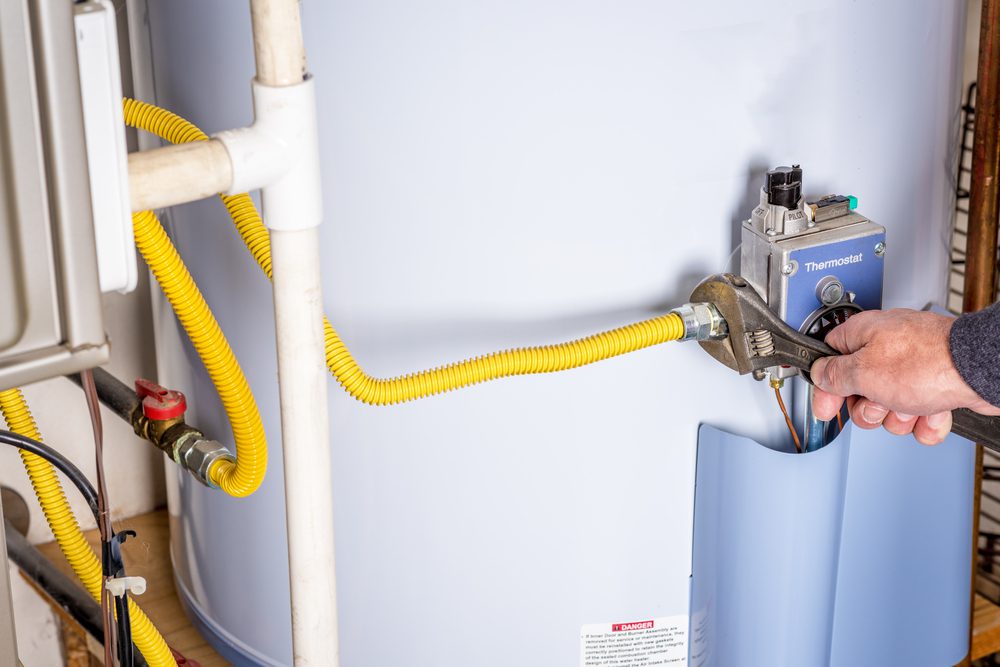Exploring The Heater Malfunctions
Exploring The Heater Malfunctions
Blog Article
Every person has got their unique idea about Common Problems with Your Home Water Heater.

Visualize beginning your day without your regular warm shower. That already establishes a bad tone for the rest of your day.
Every house requires a reputable water heater, however just a couple of know just how to take care of one. One very easy method to maintain your water heater in top form is to look for mistakes regularly as well as repair them as quickly as they show up.
Remember to switch off your hot water heater prior to smelling about for mistakes. These are the water heater mistakes you are most likely to encounter.
Water too hot or too cold
Every water heater has a thermostat that identifies how warm the water gets. If the water entering your house is too warm despite setting a hassle-free optimum temperature level, your thermostat might be faulty.
On the other hand, too cold water might result from a stopped working thermostat, a broken circuit, or inappropriate gas circulation. As an example, if you utilize a gas water heater with a busted pilot light, you would certainly get cold water, even if the thermostat remains in perfect problem. For electric heaters, a blown fuse may be the wrongdoer.
Insufficient warm water
Hot water heater can be found in numerous dimensions, depending on your warm water demands. If you run out of hot water before every person has had a bathroom, your water heater is as well little for your family size. You must consider setting up a bigger hot water heater tank or choosing a tankless water heater, which occupies much less room as well as is much more durable.
Strange noises
There are at least five kinds of noises you can speak with a hot water heater, however one of the most typical interpretation is that it's time for the water heater to retire.
To start with, you ought to know with the regular appears a hot water heater makes. An electric heating unit may sound various from a gas-powered one.
Standing out or banging sounds usually suggest there is a slab of debris in your containers, as well as it's time to clean it out. On the other hand, whistling or hissing audios may simply be your valves allowing some stress off.
Water leaks
Leakages could originate from pipes, water links, shutoffs, or in the worst-case situation, the container itself. In time, water will certainly corrode the container, and locate its way out. If this occurs, you require to replace your hot water heater immediately.
Nonetheless, prior to your change your entire storage tank, make certain that all pipelines are in place and that each shutoff functions flawlessly. If you still need assistance recognizing a leakage, call your plumber.
Rust-colored water
Rust-colored water implies among your hot water heater parts is worn away. Maybe the anode pole, or the container itself. Your plumber will certainly have the ability to determine which it is.
Lukewarm water
Regardless of exactly how high you set the thermostat, you won't get any warm water out of a heating system well past its prime. A hot water heater's performance may decrease with time.
You will likewise get warm water if your pipelines have a cross link. This indicates that when you switch on a faucet, warm water from the heating unit moves in along with routine, cold water. A cross link is easy to place. If your hot water faucets still follow closing the hot water heater shutoffs, you have a cross connection.
Discoloured Water
Corrosion is a major source of filthy or discoloured water. Deterioration within the water storage tank or a falling short anode rod can trigger this discolouration. The anode pole safeguards the storage tank from rusting on the within and need to be inspected annual. Without a rod or an appropriately operating anode rod, the warm water quickly corrodes inside the storage tank. Call a specialist water heater professional to determine if replacing the anode rod will fix the problem; if not, replace your water heater.
Conclusion
Preferably, your hot water heater can last ten years before you need a modification. Nevertheless, after the 10-year mark, you may experience any one of these faults a lot more on a regular basis. At this point, you must include a new water heater to your budget plan.
How To Troubleshoot 3 Common Water Heater Problems in Twin Cities
The Water Heater Is Leaking
A leaky cold water inlet valve A loose pipe fitting A leaky temperature and pressure relief valve A corroded anode rod A cracked tank Turn Off Your Water Heater:
Shut off your gas water heater by turning the gas valve on the unit to the “OFF” position. Shut off your electric water by switching its power off at your electrical panel. Look for a two-pole breaker labeled “water heater” and turn it to the “OFF” position. Move the ball valve connected to the water heater to be perpendicular to the piping at a 90° angle. Look for the Leak:
Depending on whether the water is coming from the tank's top or bottom, you’ll want to look for the leak in different locations.
If the leak comes from the top of the tank, carefully look for water escaping from the cold water inlet valve or loose pipe fittings. Rusted hot and cold water valves can have loose connections with the tank, with water leaking out of them.
https://mspplumbingheatingair.com/blog/how-to-troubleshoot-3-common-water-heater-problems
We had been made aware of that report about Water Heater Repair and Troubleshooting through someone on a different site. Do you know about somebody else who is intrigued by the niche? Be sure promote it. I am grateful for your time. Visit again soon.
Book 24/7 Report this page